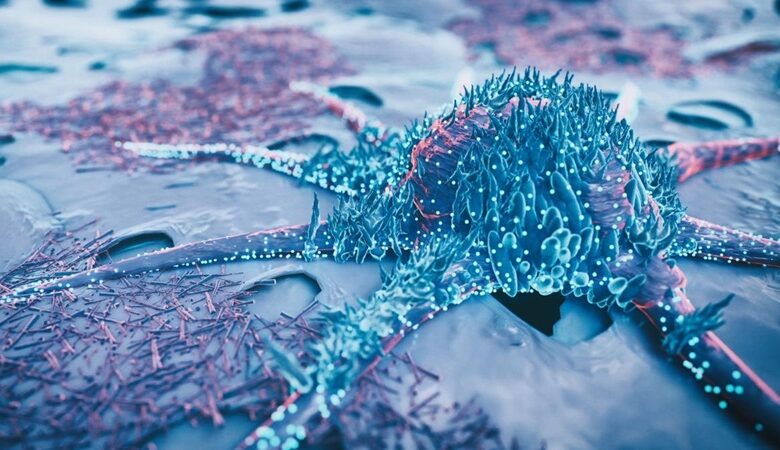Unveiling the Role of Ancient Viral DNA in Human Health and Cancer

News Mania Desk/Agnibeena Ghosh/18th July 2024
Delving into the intricate blueprint of the human genome reveals more than just the fundamental genes that define life. Embedded within our genetic code are remnants of ancient viruses, known as endogenous retroviruses, which once infiltrated the cells of our primate ancestors millions of years ago.
Initially dismissed as dormant or “junk” DNA, a recent study by researchers at CU Boulder, published in Science Advances on July 17, sheds light on how these ancient viral fragments can reawaken and influence modern diseases, including cancer.
Lead by senior author Edward Chuong, the study highlights that certain endogenous retroviruses can play a pivotal role in cancer progression by acting as genetic “switches” that activate nearby genes crucial for tumor development and growth.
Chuong, an assistant professor at CU’s BioFrontiers Institute, emphasized the significant impact of these viral remnants on human health, which has long been overlooked by researchers. Approximately 8% of the human genome comprises these viral elements, integrated over generations through sperm, eggs, and embryos, thereby becoming a permanent fixture in human evolution.
“Our study reveals that diseases today can be markedly influenced by these ancient viral infections that have persisted across millennia,” Chuong remarked.
The research focused on a specific lineage of endogenous retroviruses, LTR10, which infected primates around 30 million years ago. Analyzing genomic data from 21 types of human cancers, including lung and colon cancer, the study found heightened activity of LTR10 in tumor cells. Notably, in colorectal cancer patients, LTR10 was active in approximately one-third of cases.
Using advanced CRISPR gene editing techniques, Chuong’s team demonstrated that silencing LTR10 in cancer cells led to the deactivation of critical cancer-promoting genes. This included genes like XRCC4, which are essential for tumor growth.
“Our experiments in mice mirrored these findings, showing that disabling the LTR10 ‘switch’ improved the efficacy of treatments aimed at shrinking tumors,” said Atma Ivancevic, the study’s first author and a research associate at CU Boulder.
Moreover, the study suggests that existing cancer therapies, such as MAP-kinase inhibitors, may operate partly by disrupting these endogenous retrovirus switches within the MAP-kinase pathway—a critical cellular pathway often dysregulated in cancers.
Chuong underscored the broader implications of their findings, suggesting that as individuals age, their genomic defenses may weaken, potentially allowing ancient viruses to reemerge and contribute to various health issues beyond cancer.
“While endogenous retroviruses do not provide the entire explanation for disease mechanisms, they could represent a substantial piece of the puzzle,” Chuong concluded.
The study not only deepens our understanding of how ancient viral DNA influences human health but also points toward potential new avenues for developing more effective treatments for cancer and other diseases influenced by genomic factors. As research continues, unraveling the complex interplay between our genetic heritage and disease susceptibility remains a crucial frontier in biomedical science.






